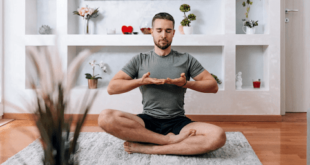There comes a morning in the life of every person that sleep turns traitor. While having a sleepless night on occasion can have irritating side effects, it is not overly detrimental. Unfortunately, if missing a decent night of sleep is a regular occurrence, therein lies the problem.
The National Sleep Organization presents findings that show the average adult will need between seven and nine hours of sleep a night. And while there is always someone who can get by with less, they are the exception, not the rule.
Who Needs Sleep?
Most people are well aware that the lack of sleep can reduce one’s ability to function at higher levels during the day. Unfortunately, what is not understood is that chronic lack of sleep can also impact physical well-being.
Staying up all night tends to lead to snacking. Regrettably, the food choices tend to be higher in sugar, salt, and calories leading a person to gain weight. The added weight then leads to other health concerns down the line.
Two of the biggest culprits of a sleepless night are sleep apnea and insomnia.
Sleep apnea reduces the amount of oxygen being received by the body because the airways are repeatedly blocked while asleep. Consequently, the person has several periods in which they are not breathing while they sleep. This condition can be caused by being overweight.
Unfortunately, this condition also leads to an increased risk of other health hazards like heart attack and stroke.
Insomnia sufferers have limited ability to fall asleep and or stay asleep. Being awake at all hours can cause higher levels of stress and a lack of motivation in daily activities.
Getting enough sleep to function the next day is so essential that various techniques are employed to achieve it. A sliding interior door, for instance, might help shut out excess noise, or sleeping face masks help block out light from outside.
The Importance of Sleep
With the way many adults burn the midnight oil, it can seem like sleep is just another task that does not get accomplished. However, those that tend to miss out on a good night’s rest are also robbing themselves of the benefits that it brings.
A healthy brain is a happy brain, and a happy brain is well-rested. Getting the recommended allotment of sleep on a routine basis provides a host of benefits to the brain and the rest of the body.
Sharper memory is something you will have the more rested you are. Think of the brain as a computer hooked to the internet. All-day long, various queries bombard it with audio and visual sensory stimuli (cookies). During the day, cookies are collected from these sources. However, daytime is not the time for the brain to process the mass of information coming in. While sleeping, the brain goes through the cookies and sorts them into their proper places. This essentially makes learning new tasks and retaining information easier, including sharpening mental acuity, cognitive function, and the ability to concentrate and learn new things.
Lack of sleep can hinder improved mental well-being. Some links that show lack of sleep can exacerbate conditions such as depression. While the link between mental health and sleep is not clear, it does appear that one can influence the other. What is evident is that the lack of sleep can initiate or worsen psychological conditions.
Several studies conducted by the CDC indicate that chronic lack of sleep has a severe negative impact on an individual’s overall health. Those who have an issue with conditions like sleep apnea, asthma, or depression may also have an increased risk of health issues like high blood pressure, obesity, and diabetes.
Getting to dreamland more often may not seem like a big to deal. However, the implied link between being well-rested and feeling happier and healthier is getting clearer every day. It is important to take each opportunity of getting enough rest whenever possible. There are also a variety of techniques that can be used to encourage getting enough rest.
Speaking with a professional and taking a good look at daily habits can improve the ability to sleep. Even those with underlying conditions can achieve a balance.
 eTopical Precious Finds
eTopical Precious Finds


